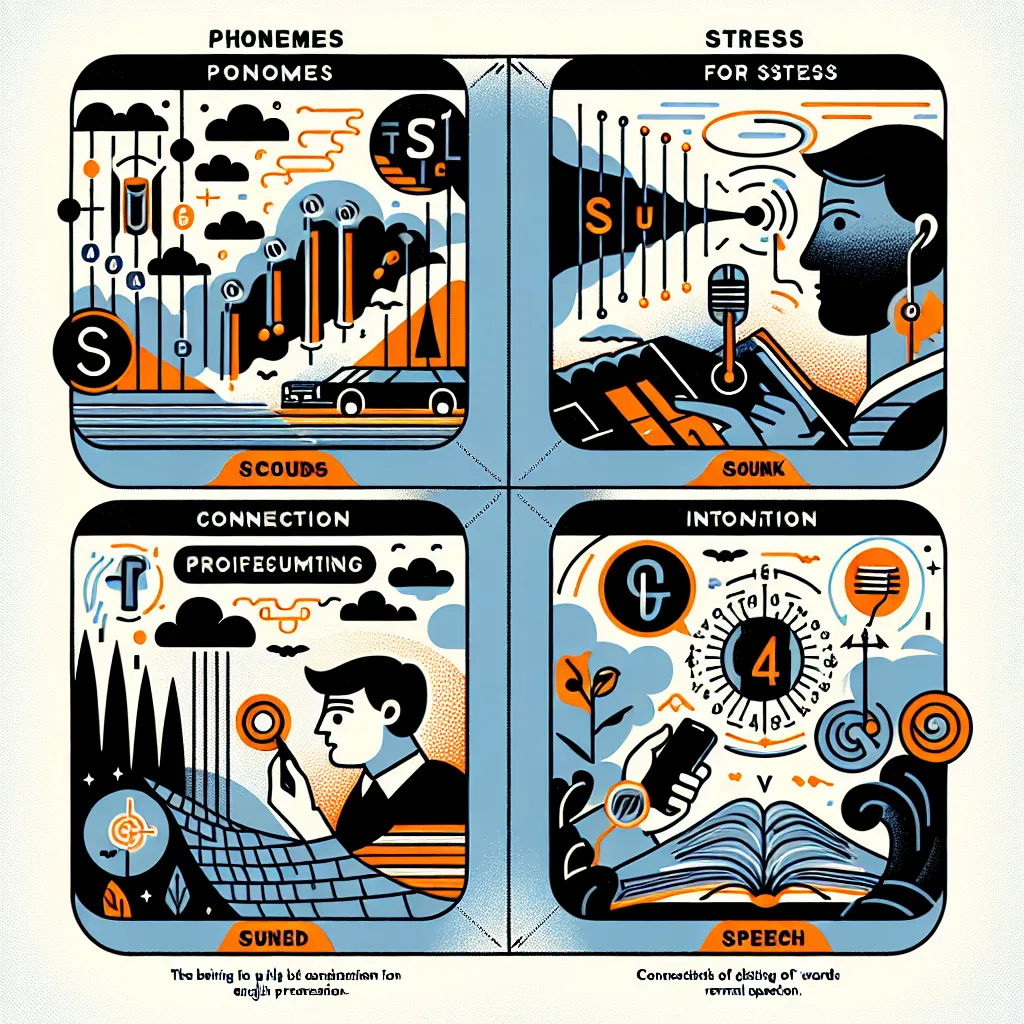Are you looking to take your English pronunciation to the next level? Immersive experiences can be a game-changer in your language learning journey. This comprehensive guide will explore effective strategies for improving your pronunciation through immersion, providing you with practical tips and insights to help you sound more like a native speaker.
Understanding the Importance of Immersive Learning
Immersive learning is a powerful approach to language acquisition that involves surrounding yourself with the target language in various contexts. When it comes to pronunciation, immersion provides numerous benefits:
- Exposure to authentic accents and speech patterns
- Opportunities for real-time practice and feedback
- Improved listening skills and sound recognition
- Increased confidence in speaking
 Immersive Learning Environment
Immersive Learning Environment
The Science Behind Immersion and Pronunciation
Research has shown that immersive experiences can significantly enhance language learning, particularly in the area of pronunciation. A study published in the Journal of Phonetics found that learners who participated in immersive programs showed marked improvement in their accent and intonation compared to those who relied solely on classroom instruction.
Effective Immersive Techniques for Pronunciation Improvement
1. Listen and Repeat with Native Audio
One of the most effective ways to improve your pronunciation through immersion is by listening to and repeating native audio. This technique, known as shadowing, helps you internalize the rhythm and intonation of English speech.
- Use podcasts, audiobooks, or YouTube videos featuring native speakers
- Focus on mimicking not just individual sounds, but also stress and intonation patterns
- Record yourself and compare your pronunciation to the original
For more detailed guidance on interactive pronunciation lessons, check out our article on how to practice pronunciation using interactive lessons.
2. Engage in Conversation Exchange
Practicing with native speakers provides invaluable real-time feedback and exposure to authentic pronunciation. Here’s how to make the most of conversation exchanges:
- Use language exchange apps or websites to find native English-speaking partners
- Focus on specific sounds or words you find challenging
- Ask for feedback on your pronunciation and be open to corrections
3. Immerse Yourself in English Media
Surround yourself with English-language content to train your ear and improve your pronunciation:
- Watch movies and TV shows in English with English subtitles
- Listen to English music and try to sing along
- Follow English-language YouTube channels on topics that interest you
For more tips on developing a natural English accent through immersion, visit our guide on how to develop a natural English accent.
4. Participate in Online Discussion Groups
Engaging in online discussions can provide a low-pressure environment to practice your pronunciation:
- Join English-language forums or social media groups related to your interests
- Participate in voice chats or video calls to practice speaking
- Record voice messages to share your thoughts and receive feedback
Learn more about improving your English through online discussions in our article on how to improve English through online discussion groups.
5. Use Pronunciation Apps and Software
Leverage technology to create an immersive learning experience at home:
- Use apps like ELSA Speak or Pronunciation Coach for targeted practice
- Explore speech recognition software to get instant feedback on your pronunciation
- Utilize virtual reality (VR) language learning platforms for immersive scenarios
Common Pronunciation Challenges and How to Overcome Them
When improving pronunciation through immersion, learners often encounter specific challenges. Here are some common issues and strategies to address them:
- Th-sound: Practice by placing your tongue between your teeth and blowing air out
- R-sound: Focus on curling your tongue back slightly and rounding your lips
- Vowel sounds: Pay attention to the subtle differences between similar vowel sounds, like “ship” vs. “sheep”
For a comprehensive guide on mastering English vowel sounds, check out our tips for mastering the English vowel chart.
The Phonemic Chart and Commonly Mispronounced Words
Understanding the International Phonetic Alphabet (IPA) and familiarizing yourself with the phonemic chart can greatly enhance your pronunciation skills. Here’s a simplified version of the English phonemic chart:
- Consonants: /p/, /b/, /t/, /d/, /k/, /g/, /f/, /v/, /θ/, /ð/, /s/, /z/, /ʃ/, /ʒ/, /h/, /tʃ/, /dʒ/, /m/, /n/, /ŋ/, /l/, /r/, /j/, /w/
- Vowels: /iː/, /ɪ/, /e/, /æ/, /ʌ/, /ɑː/, /ɒ/, /ɔː/, /ʊ/, /uː/, /ɜː/, /ə/
- Diphthongs: /eɪ/, /aɪ/, /ɔɪ/, /əʊ/, /aʊ/, /ɪə/, /eə/, /ʊə/
Here are 10 commonly mispronounced English words related to immersive experiences, along with their correct pronunciations:
- Immersive: /ɪˈmɜːrsɪv/ (not /ɪmˈmɜːrsɪv/)
- Experience: /ɪkˈspɪəriəns/ (not /eksˈpɪəriəns/)
- Pronunciation: /prəˌnʌnsiˈeɪʃn/ (not /prəˌnaʊnsiˈeɪʃn/)
- Language: /ˈlæŋɡwɪdʒ/ (not /ˈlæŋɡwəɡ/)
- Fluency: /ˈfluːənsi/ (not /ˈflʊənsi/)
- Authentic: /ɔːˈθentɪk/ (not /aʊˈθentɪk/)
- Vocabulary: /vəˈkæbjʊləri/ (not /vəˈkæbjʊleɪri/)
- Intonation: /ˌɪntəˈneɪʃn/ (not /ˌɪntɒˈneɪʃn/)
- Accent: /ˈæksent/ (not /əkˈsent/)
- Rhythm: /ˈrɪðəm/ (not /ˈrɪθəm/)
Practice these words regularly and pay attention to the subtle differences in pronunciation.
Conclusion
Improving your English pronunciation through immersive experiences is an effective and enjoyable way to enhance your language skills. By incorporating these strategies into your daily routine, you’ll be well on your way to sounding more like a native speaker. Remember, consistency is key, and every small effort counts towards your overall progress.
For more in-depth guidance on mastering English pronunciation through immersion, don’t forget to explore our comprehensive guide on how to master English pronunciation through immersion.
We encourage you to share your own experiences with immersive learning in the comments below. What techniques have worked best for you? What challenges have you faced, and how did you overcome them? Your insights could be invaluable to other learners on their pronunciation journey.




